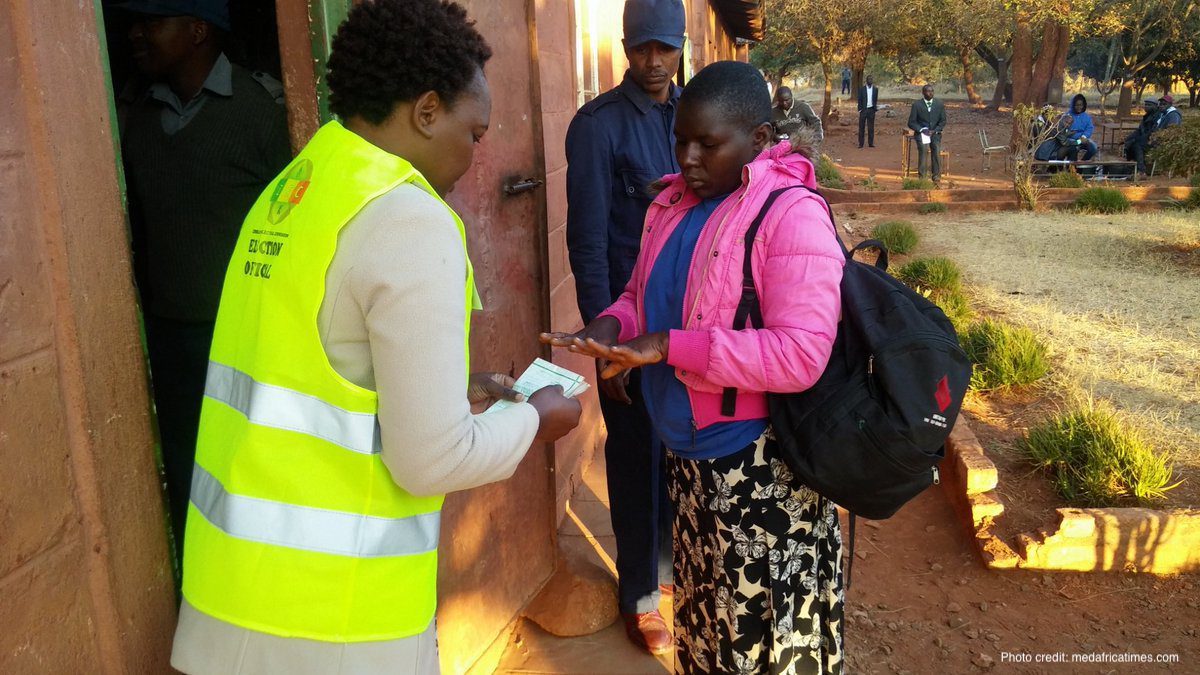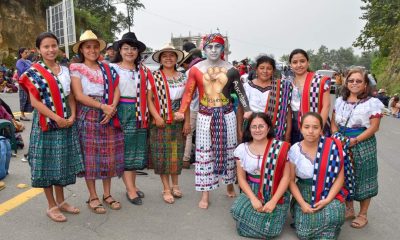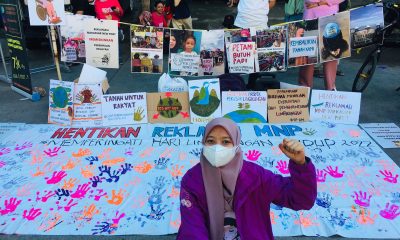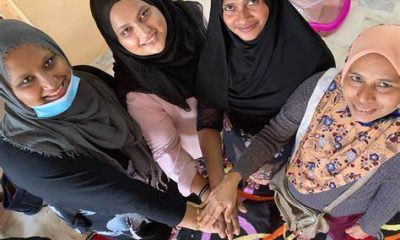By Laura Carlsen Km. 148 is a nodal point on the Interamerican Highway that connects…

By Adelaide Mazwarira
The real names of the four women highlighted in this article* have been changed for their safety.
Despite a chaotic election marred by blatant irregularities, Emmerson Mnangagwa was declared the winner, securing his second term as president. This result continues the reign of the ZANU-PF party which has held power since the country gained independence in 1980. The outcome did not come as a surprise. For many, it was almost certain. “I went into the election feeling like it will be business as usual,” shared JASS friend, Princess*
This election came against a backdrop of decades-long economic turmoil including hyperinflation, high unemployment rates, unpredictable surges in prices of essential goods, limited access to electricity and clean water, and a deteriorating healthcare sector. The stakes were high, but the expectations remained low.
As Zimbabweans prepared to cast their vote on August 23, many of the activists we spoke to from our JASS network expressed feelings of disillusionment regarding the effectiveness of elections to address these conditions. Everjoice Win, a JASS co-founder and longtime advisor, posed a rhetorical question,
“Why do we assume that elections are the best method to determine who among us can effectively mind our common goods—our schools, healthcare, roads, electricity, and water? There surely must be an alternative, because, as currently configured, elections raise excluded and oppressed peoples’ hopes, only to dash them mercilessly.”
Others voiced their low expectations, “I did not see or anticipate any change in terms of power and the government mainly because of what we were witnessing in the pre-electoral processes,” echoed Gamuchirai* These sentiments are understandable given the country’s tumultuous history when it comes to elections.
A familiar playbook with a winning formula
For over 20 years, Zimbabwe’s elections have followed a familiar and almost predictable pattern. Each time, the ruling party has faced allegations of using violence, intimidation, disinformation, surveillance, and arrests, to maintain its grip on power.
In an article that delves into the growing trend of electoral impunity prevalent across the African continent, Chidi Odinkalu, a human rights expert, illustrates the deliberate and calculated nature of these tactics, “Across the continent, incumbents with spent legitimacy go into elections with terminal hubris. With public resources, they compromise every institution in the election management and dispute resolution chain, frustrating the basic structure and rules of electoral contests.”
This 2023 election used many of the same tactics. “I don’t think there is any paragraph left in the toolkit that has not been utilized over the last 20 years. What we are seeing is more of an entrenchment of those things we have always known,” said Everjoice.
Even when an election concludes, the script remains consistent. “Lo and behold, the rulers continue to rule and the opposers continue to oppose. It’s the same old story that has played out in Zimbabwe since 1980,” remarked Chipo*.
Both the often silent Southern Africa Development Community (SADC) and the European Union Election Observation Mission issued statements expressing concern that irregularities compromised the election, casting doubt on whether it was conducted in a free, fair, and transparent manner.
These irregularities included reports of diminished internet access, canceled rallies of the opposition party, raids on the offices and arrests of around 40 activists from civil society organizations—Zimbabwe Election Support Network (ZESN) and Election Resource Centre (ERC)—engaged in election monitoring, and a lack of access to current voter’s roll information.
Perhaps the most brazen obstruction was the absence and subsequent delay of ballot papers at many polling stations on the election day, particularly in urban areas. Odinkalu argues that this was an orchestrated tactic meant to suppress voter turnout, “In all major strongholds of the opposition, it seemed clear that the government and its hand-picked Zimbabwe Electoral Commission had succeeded in suppressing turnout among voters not sympathetic to them.”
While predictably, some voters gave up and went home, others persevered. Gamuchirai described the situation, “There were so many delays in many constituencies in Harare, for example, some polling stations only received ballot papers at 8pm, when they were supposed to be closed, and voting completed. I saw people of all ages waiting in line for long hours just to vote. Some arrived as early as 5am and waited as late as 1am to vote. That determination gave me a sense of hope.”
In contrast to previous elections, this 2023 election didn’t exhibit the usual high levels of violence. Instead, many observed that voter intimidation emerged as a key tactic used in rural and urban areas to evoke fear. “This election was run by the security sector in terms of intelligence. Although we didn’t witness a prominent military or police presence, the role of intelligence was notable. The establishment of the Forever Associates of Zimbabwe (FAZ)—an entity with individuals closely affiliated with the government’s intelligence agency—was one of the displays of this intelligence involvement,” explained Chipo.
In certain instances, in the urban areas like Mbare, FAZ threatened people’s livelihoods, particularly the potential loss of their market stalls if they did not vote for the ruling party. “It became a matter of choosing between freedom and survival. Most people, especially women, had to choose survival because they couldn’t afford to lose their source of livelihood,” explained Gamuchirai.
Unmasking the election’s blind spots
In the lead-up to the Zimbabwean election, Everjoice highlighted what she termed ‘blind spots’: “Our blind spots on intersectionality—race, class, gender—have come back to bite us!” she asserted. Through this lens, she emphasized the importance of understanding and analyzing the intricate power dynamics that reinforce the status quo. Often overlooked due to their normalization, these dynamics provide a unique vantage point for comprehending the complexities at play.
Class and a culture of entitlement
“Class in particular is not even the elephant in the room. It is the elephant in the hat!” quipped Everjoice in her usual manner of delivering sharp analysis with a touch of sarcasm.
During this election, those seeking to run for office had to pay exorbitant fees. For the presidency, the fees surged from $1,000 USD to $20,000 USD, and for parliamentary positions, they escalated from $50 USD to $1,000 USD. In a nation where a vast majority, approximately 90%, depend on informal employment for their livelihoods, and where even individuals with formal employment often grapple with financial constraints, these elevated fees posed an insurmountable challenge. This drastic increase effectively excluded a significant portion of the population. “Those who experience poverty and exclusion every day were deliberately shut out of contesting, leaving only the well-heeled. So, they kept them out and found an excuse that looks legitimate.” argued Everjoice.
Even more discouraging was the normalization and acceptance of this barrier as Everjoice observed in different discussions on X (formerly known as Twitter), “I would say maybe 0.005% of people on these calls had a problem with those amounts of money. Most said, saying, ‘yes, this is the moment to sift the grain from the chaff’.” Referring to this excluded majority as “chaff” only reinforced the message that their opinions and interests held no significance. “Chaff! The people whose interests elected leaders must represent, described as ‘chaff!” adds Everjoice.
Patriarchy silently rears its ugly head
Gender added another layer of exclusion particularly for women. This election saw a greater drop in the number of women candidates than we have ever seen before as Everjoice commented, “What makes this moment more painful is that despite the strides and investments women’s movements have made, we are seeing the lowest numbers of women running for office in the history of Zimbabwe since independence.” Princess also raised similar concerns, “Even if you look at the number of women running for office, it speaks volumes about exclusion and how spaces are created to exclude particular people, in this case women.”
Beneath this decline lies a deeper issue: entrenched patriarchy that permeates every aspect of our lives. A systemic form of power, patriarchy enforces traditional gender roles and hierarchies that disproportionately favor men while marginalizing and limiting the agency of women and non-binary people. When examining the context of political candidacy, patriarchy and authoritarianism work in tandem to replicate and reinforce exclusionary gender norms. In an interview with NewsDay, Glanis Changachirere from our partner, IYWD (The Institute for Young Women’s Development) gave a detailed explanation, “…It is important to acknowledge that in Zimbabwe, women experience a patriarchal authoritarian system. This means the patriarchy is reinforced by and simultaneously reinforces the authoritarian repression that we see in politics. The under-representation that we are seeing among candidates in council, Parliament and even at presidential level is a result of the patriarchal authoritarianism in this country. Despite progress that we make in having laws that advance women’s rights in place, those gains are deliberately reversed to preserve patriarchal privileges that the authoritarian system enjoys.”
The influence of Christian fundamentalism
The 100-page manifesto of the main opposition party, Citizens Coalition for Change, drew critique and debate for its plan to, “…restore Zimbabwe back to God in honor, values, faith, worship and praise.” Many raised concerns over the use of ‘restore’ and ‘reinstate’ given that Zimbabwe is a secular state with diverse religions and beliefs as well as diverse practices. These political narratives are designed to activate socially conservative norms and prejudices – what JASS terms “invisible power” – concerning women’s roles, the notion of the “traditional” family, and the acceptance of LGBTQI individuals – and to mobilize specific voting behavior and advance particular political agendas.
Everjoice elaborated on this point, “I think this is still a huge blind spot in civil society and in women’s rights organizing in Zimbabwe and the region. We do not pay as much attention as we need to, on the negative influence of Christianity. There appears to be a general belief that Christianity is a force for good…” Yet, as Everjoice also noted, we have seen how violations of women’s rights are explained away by quoting religious texts and dictates. From Brazil to the United States, Uganda to Nigeria, Myanmar to India, and every country in between, we have seen the impact on women’s rights once the state decides to mix religion and politics.
What now? Voices from movement activists
Despite the recurring failures of elections to deliver the democracy dividends voters aspire to, elections still hold significant consequences for people’s lives. In the aftermath of this election, Zimbabwe is poised to embark on another five-year period characterized by, as Chipo expressed, the continuation of “extractivism, oppression, and lawfare—using law as a weapon against anyone who speaks out.”
Rather than succumbing to resignation, however, Zimbabwean activists in JASS’ networks underscored the potential for the recent election to serve as a catalyst for organizers and social movements to recalibrate their strategies, moving away from defining democracy solely within the framework of electoral politics. Instead, they propose investing in contextual analysis, consciousness-raising and community-led mobilizing and organizing for longer term change.
Power lies with the people
When asked where does the power lie? Princess reminds us that democracy is not bestowed upon us by formal power, “Power lies with the people. I think we are all looking up to political leaders to lead us and yet we are the people who can actually determine our own lives.”
Chenai* agreed, emphasizing the shortcomings of elections in addressing systemic transformation we seek, “Elections aren’t going to bring the political change and justice that Zimbabwe needs. It’s that grounded, women-led organizing for needs and rights which will bring lasting change. That is the frontline.” Princess underscored the importance of investing in the power of movement organizing, “This is where we should be putting our energies—building collectively our understanding of how the world works and building a critical mass of people who can actually be the enforcers of the change they want.”
Context matters: What is Zimbabwe’s clock telling us?
Chipo referenced the recent JASS dialogues, “What time is it on the clock of the world?” as an important starting point for bringing women together to analyze their context and formulate organizing strategies for moving forward. “Just being able to read the current moment is going to be key. How are we reading the current moment? We need to have those conversations with women activists and ask what time is it on Zimbabwe’s clock? This will enable women to analyze the negative layers of power and how they are affecting them as individuals, within their families and at community level. They can also examine this from a generational lens.” Chipo also highlighted the crucial need to prioritize the safety and wellbeing of women, particularly considering the ongoing trend of closing civic spaces and, in some instances, the complete shutdown of such spaces. These circumstances make organizing not only difficult but risky for women. “Centering the safety and security of women activists, through Heart-Mind-Body, will be critical. We will need to create brave spaces even amidst the closing and closed space—lighting a candle in the dark. The more candles we light, the brighter it will become,” concluded Chipo.
Democracy is not elections
While elections are often closely associated with democracy, Everjoice challenges us to broaden our perspective and view democracy not merely as a process of casting votes but as a catalyst for transformation and justice. “Democracy is everybody having access to clean water today and tomorrow. Democracy is addressing the injustices of the past because there have been many and ensuring that there is justice. And by justice, we’re not talking about the justice of the courts or the law. We’re talking about justice in terms of equitable outcomes. Where everybody’s voice matters. Democracy is that happy place where the economy meets the social and the political, where everyone is comfortable, not individually, but collectively.”




























